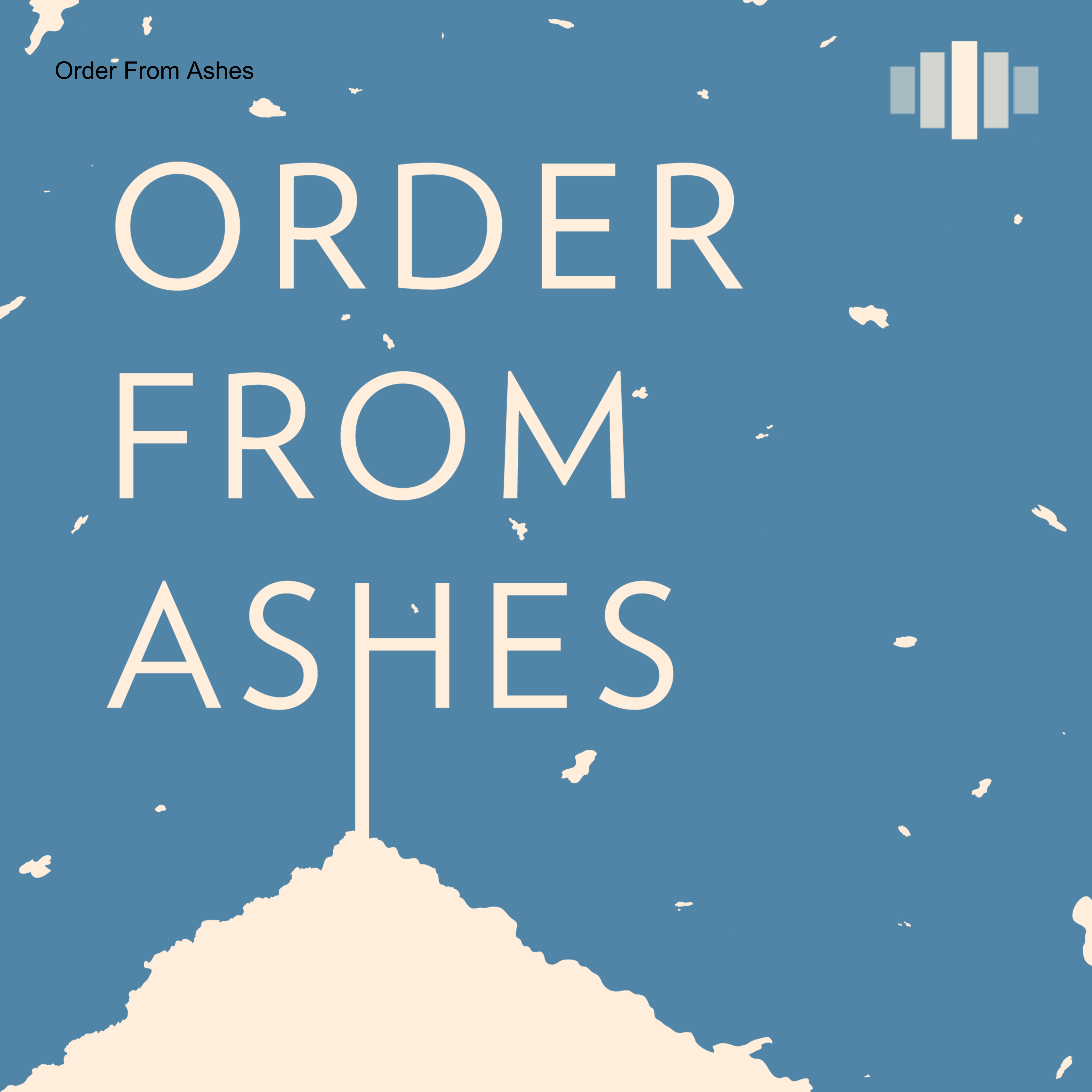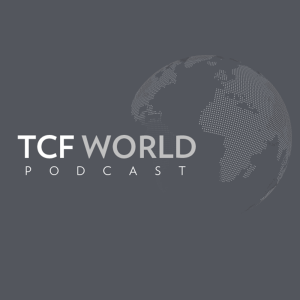
Today’s world is in unprecedented flux. Rights and citizenship are under assault. Authoritarianism is on the rise. No single country can dictate the rules. The Middle East lies at the cutting edge of the crises of our age, with every world power, including the United States, deeply involved. Host Thanassis Cambanis interviews activists, researchers, and decision-makers about the problems of our time, and possible solutions. This podcast is produced by Century International. Our research focuses on the human impact of global policy. We are independent, critical, and progressive. Find our work at https://tcf.org/topics/century-international/.
Episodes

Tuesday May 28, 2019
America’s Blind Spot on Palestine
Tuesday May 28, 2019
Tuesday May 28, 2019
For years, the United States has invested significant political capital in attempting to broker a peaceful resolution to the Israeli–Palestinian conflict. However, these attempts have largely failed. Israel’s occupation is more entrenched than most Americans realize, and Palestinian politics appear increasingly splintered. Many commentators and policymakers now believe a two-state solution is no longer viable. In this podcast, Khaled Elgindy identifies two main blind spots that have hobbled America’s role as an effective mediator: Israeli power and Palestinian politics.
Participants include:
- Khaled Elgindy, nonresident fellow, Brookings Institution
- Michael Wahid Hanna, senior fellow, The Century Foundation

Wednesday May 08, 2019
Contesting Sectarian Identity in Iraq
Wednesday May 08, 2019
Wednesday May 08, 2019
Although it’s still widely used by analysts and policymakers, the term “sectarianism” has distorted efforts to explain political dynamics in Iraq. Since 2003, Iraqi society has undergone significant transformations as a result of social, political, and other forces. Fanar Haddad discusses the drivers of political instability in Iraq. Sectarian dynamics have evolved, along with Iraqi views of nationalism. The political system has normalized, both domestically and regionally. A more inclusive notion of citizenship, Haddad argues, requires a strong institutional basis.
This podcast is part of “Citizenship and Its Discontents: The Struggle for Rights, Pluralism, and Inclusion in the Middle East” a TCF project supported by the Henry Luce Foundation.
Participants include:
- Fanar Haddad, senior research fellow, Middle East Institute, National University of Singapore
- Rohan Advani, senior policy associate, The Century Foundation
![[Arabic] LGBTQ Rights in Egypt](https://pbcdn1.podbean.com/imglogo/ep-logo/pbblog2130312/TCFWorld2_300x300.png)
Thursday May 02, 2019
[Arabic] LGBTQ Rights in Egypt
Thursday May 02, 2019
Thursday May 02, 2019
This podcast is in Arabic.
From the Queen Boat incident in 2001 to the waves of arrests following Mashrou’ Leila’s concert in Cairo in 2017, Egypt’s LGBTQ community has always endured a precarious position. In recent years, Egyptian authorities have directed a brutal crackdown against its members. Ahmed El Hady discusses the recent intensification of repression and the crisis facing LGBTQ Egyptians. El Hady, an activist and a neuroscientist, situates the struggle for LGBTQ rights in Egypt within the broader quest for political freedoms that began in 2011. Any discussion of rights, he argues, must incorporate LGBTQ rights as well.
This podcast is part of “Citizenship and Its Discontents: The Struggle for Rights, Pluralism, and Inclusion in the Middle East” a TCF project supported by the Henry Luce Foundation.
Participants include:
- Ahmed El Hady, activist and neuroscientist, Princeton University
- Michael Wahid Hanna, senior fellow, The Century Foundation

Monday Apr 29, 2019
Kurdish Nationalism at an Impasse
Monday Apr 29, 2019
Monday Apr 29, 2019
Despite enjoying more autonomy than other parts of Kurdistan, Iraqi Kurdistan is losing its position as the center of gravity for Kurdish nationalism. The unwillingness of Kurdish elites to relinquish their power, economic crisis, and regional instability have made political evolution all the more difficult. As a result, Kurdish society and young Kurds in particular are disengaging from the political process. In this podcast, two researchers who conducted extensive fieldwork in Iraqi Kurdistan discuss the current political impasse of Kurdish nationalism. They argue for a new social contract that provides rights based on citizenship rather than party affiliation or patronage-based networks.
This podcast is part of “Citizenship and Its Discontents: The Struggle for Rights, Pluralism, and Inclusion in the Middle East,” a TCF project supported by the Henry Luce Foundation.
Participants include:
- Cale Salih, research officer, United Nations University Centre for Policy Research
- Maria Fantappie, Iraq senior adviser, International Crisis Group
- Thanassis Cambanis, senior fellow, The Century Foundation
![[Arabic] Universal and Minority Rights in the Middle East](https://pbcdn1.podbean.com/imglogo/ep-logo/pbblog2130312/TCFWorld2_300x300.png)
Wednesday Apr 17, 2019
[Arabic] Universal and Minority Rights in the Middle East
Wednesday Apr 17, 2019
Wednesday Apr 17, 2019
This podcast is in Arabic.
The question of universal rights in the Middle East is a delicate one. As pluralism and rights come under threat from communal violence, authoritarianism, and religious identity politics, the call for universal rights becomes even more necessary. Yet marginalized groups face unique challenges that set them apart from the wider population. Our guests discuss the basis of rights and how to create inclusive forms of citizenship. The biggest challenge they contemplate is how to push for universal rights without erasing difference.
This podcast is part of “Citizenship and Its Discontents: The Struggle for Rights, Pluralism, and Inclusion in the Middle East,” a TCF project supported by the Henry Luce Foundation. This podcast is in Arabic.
Participants include:
- Karl Sharro, architect and critic
- Lina Attalah, editor of Mada Masr
- Rabab El Mahdi, associate professor, American University of Cairo
- Michael Wahid Hanna, senior fellow, The Century Foundation

Tuesday Apr 09, 2019
Universal and Minority Rights in the Middle East
Tuesday Apr 09, 2019
Tuesday Apr 09, 2019
The question of universal rights in the Middle East is a delicate one. As pluralism and rights come under threat from communal violence, authoritarianism, and religious identity politics, the call for universal rights becomes even more necessary. Yet marginalized groups face unique challenges that set them apart from the wider population. Our guests discuss the basis of rights and how to create inclusive forms of citizenship. The biggest challenge they contemplate is how to push for universal rights without erasing difference.
This podcast is part of “Citizenship and Its Discontents: The Struggle for Rights, Pluralism, and Inclusion in the Middle East,” a TCF project supported by the Henry Luce Foundation.
Participants include:
- Karl Sharro, architect and critic
- Lina Attalah, editor of Mada Masr
- Rabab El Mahdi, associate professor, American University of Cairo
- Michael Wahid Hanna, senior fellow, The Century Foundation
- Thanassis Cambanis, senior fellow, The Century Foundation

Tuesday Mar 26, 2019
The Caliphate’s Last Stand
Tuesday Mar 26, 2019
Tuesday Mar 26, 2019
At the end of March, the last die-hard supporters of the Islamic State were driven out of the final remnant of a once-sprawling territorial caliphate encompassing vast swathes of Iraq and Syria. Associated Press reporter Sarah El Deeb covered the end of this phase of the Islamic State at the remote riverbank hamlet of Baghouz.
The group’s territory is gone, but the followers that El Deeb interviewed have not given up their allegiance to the violent group and its extreme, nihilistic ideology. El Deeb discusses the conundrum of what to do with thousands of captured Islamic State supporters—and her fear that it’s only a matter of time before the group returns in yet another incarnation.
Participants include:
- Sarah El Deeb, reporter, Associated Press
- Michael Wahid Hanna, senior fellow, The Century Foundation
- Thanassis Cambanis, senior fellow, The Century Foundation

Tuesday Mar 12, 2019
Israel’s Global Security Industry
Tuesday Mar 12, 2019
Tuesday Mar 12, 2019
Technologies and methods of controlling civilian life developed and tested in the Middle East often migrate to the United States and other world markets, where they’re used on some of the most marginalized populations. In particular, the Israeli security industry plays a pivotal global role in developing policing tactics, weapons, and instruments, which are marketed around the world.
Shimrit Lee discusses the expanding Israeli security industry and how it promotes its products and security philosophy with a profound, if often unexamined, impact on global police tactics. Lee argues that the marketing tropes used by this growing security industry have contributed to further normalization of violence against civilians.
Participants include:
- Shimrit Lee, curator, writer, and educator, New York University
- Rohan Advani, senior policy associate, The Century Foundation

Thursday Feb 21, 2019
Syrian Voices
Thursday Feb 21, 2019
Thursday Feb 21, 2019
In a conflict as polarizing as Syria’s, journalists often struggle to decide how best to bring to their audiences the voices of their sources and subjects. In this episode, two journalists who have written extensively about the conflict in Syria discuss the complexity of opinions in the country and their experiences speaking to Syrians who are ambivalent about the conflict. They share the process they use to assess the credibility of their sources and their narratives about the conflict, and how they decide what to share with their readers.
Participants include:
- Loubna Mrie is a Syrian activist, journalist, and writer. She covered the Syrian war as a photojournalist for Reuters from 2012 to 2014 in rebel-held areas. She came to the United States in 2014 and earned a MA in Near Eastern Studies from New York University. Currently based in Oakland, she is a frequent commentator on Syrian and Middle Eastern affairs and has written for The Nation, Time Magazine, Vice, and The New Republic, to name a few. She is currently writing her first book.
- Anne Barnard is a journalist for the New York Times who led coverage of the Syria war for six years, reporting from across the Middle East as Beirut bureau chief. Since 9/11, she has chronicled the human and strategic impact of U.S. war policies on frontline areas, from Iraq to Syria and Gaza. She is currently the Edward R. Murrow press fellow at the Council on Foreign Relations.

Friday Jan 25, 2019
A New Progressive International?
Friday Jan 25, 2019
Friday Jan 25, 2019
There’s been an increasingly vigorous debate in the United States of America about what a progressive foreign policy would look like. There has been far less talk, however, about how much America should care about the world—about international ties and obligations, and about the inescapably global aspects of security, finance, and trade.
On this episode of TCF World, two journalists who have written extensively about the American and international left discuss the politics and risks of international progressive alliances, and the challenges of crafting a new foreign policy for the United States without retreating into isolationism.
Participants include:
- Atossa Araxia Abrahamian is a journalist, author, and currently a senior editor at The Nation. She has written for The New York Times, New York Magazine, and the London Review of Books, among others. Her topics of interest include Left internationalism, citizenship, global inequality, borders, and the proliferation of tax havens. Her first book was The Cosmopolites: The Coming of the Global Citizen (2015).
- Sam Adler-Bell is a writer whose work focuses on issues such as surveillance, corruption, labor organizing, and criminal justice. He has written for numerous publications including The Nation, the New Republic, The Intercept, Jacobin, and was a senior policy associate at The Century Foundation.
